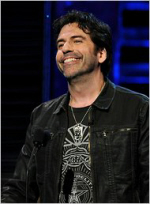Court Unanimously Affirms Diploma Privilege
The Wisconsin Supreme Court voted this morning, 7-0, to maintain the state’s longstanding diploma privilege, in its current form. The unanimous ruling denied rulemaking petition 09-09, in which Steve Levine and various other members of the bar sought either to extend the diploma privilege, as embodied in Wisconsin Supreme Court Rule 40.03, to all ABA-accredited law schools (well beyond Marquette and Wisconsin) or to abolish it altogether. The Court’s ruling was foreshadowed by comments that individual Justices had made in an open administrative hearing and subsequent conference this past Thursday, suggesting that the Court, for all of its members’ varied backgrounds, did not favor the petition. I was among the members of the public speaking before the Court on Thursday and emphasized two points: (1) that the existing approach has been beneficial public policy for the state’s courts and the public and (2) that, in fact, both Marquette and Wisconsin are distinguishable from every other ABA-accredited law school in the important extent to which their students are exposed to precepts of Wisconsin law (as well as in other respects). I also mentioned an additional consideration, with reference both to the petition to amend or repeal and to the recently (and favorably) concluded constitutional challenge to the diploma privilege: requests such as this are destabilizing, imposing costs with no offsetting benefits. They divert the law schools from other important public policy concerns, including ones in which I would rather expect the entire bar to be interested: e.g., how to provide leadership in facilitating access to justice. This additional consideration suggested that, if the Court were inclined in the direction of denying the petition, it should leave no doubt on the matter. The Court—through its unanimous ruling and the strong comments of individual Justices during the open administrative conference—did precisely that.

